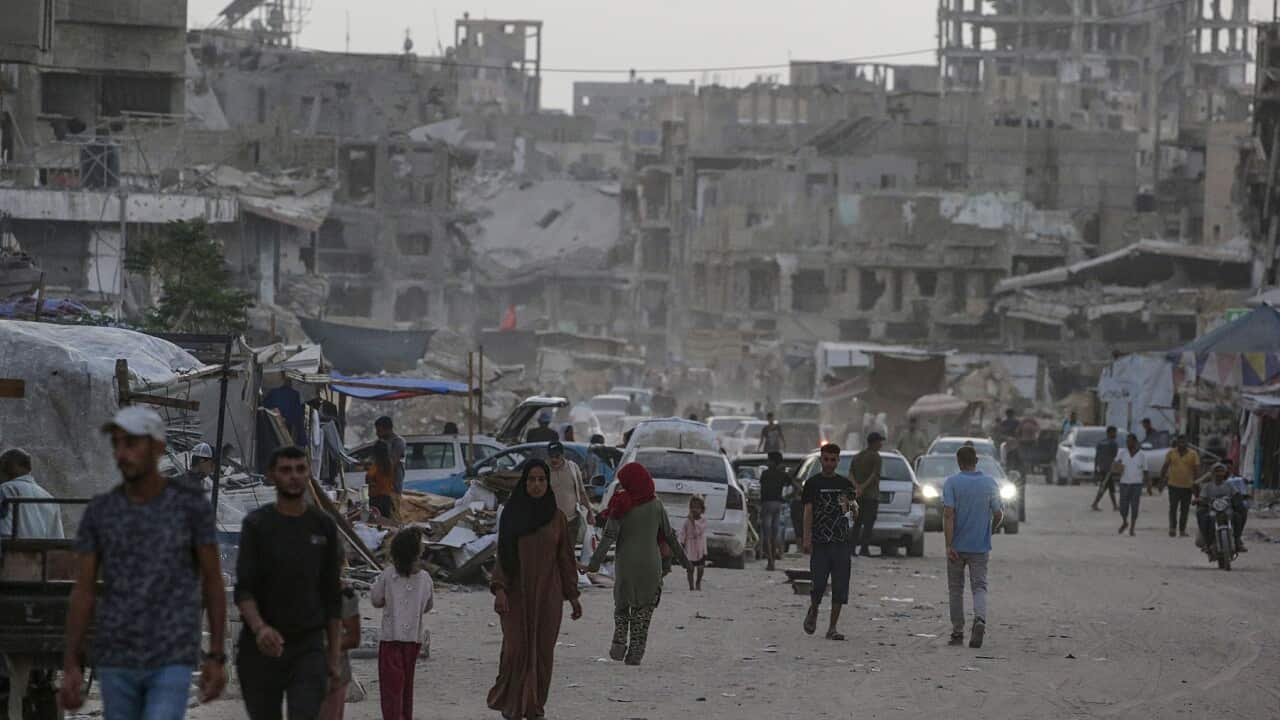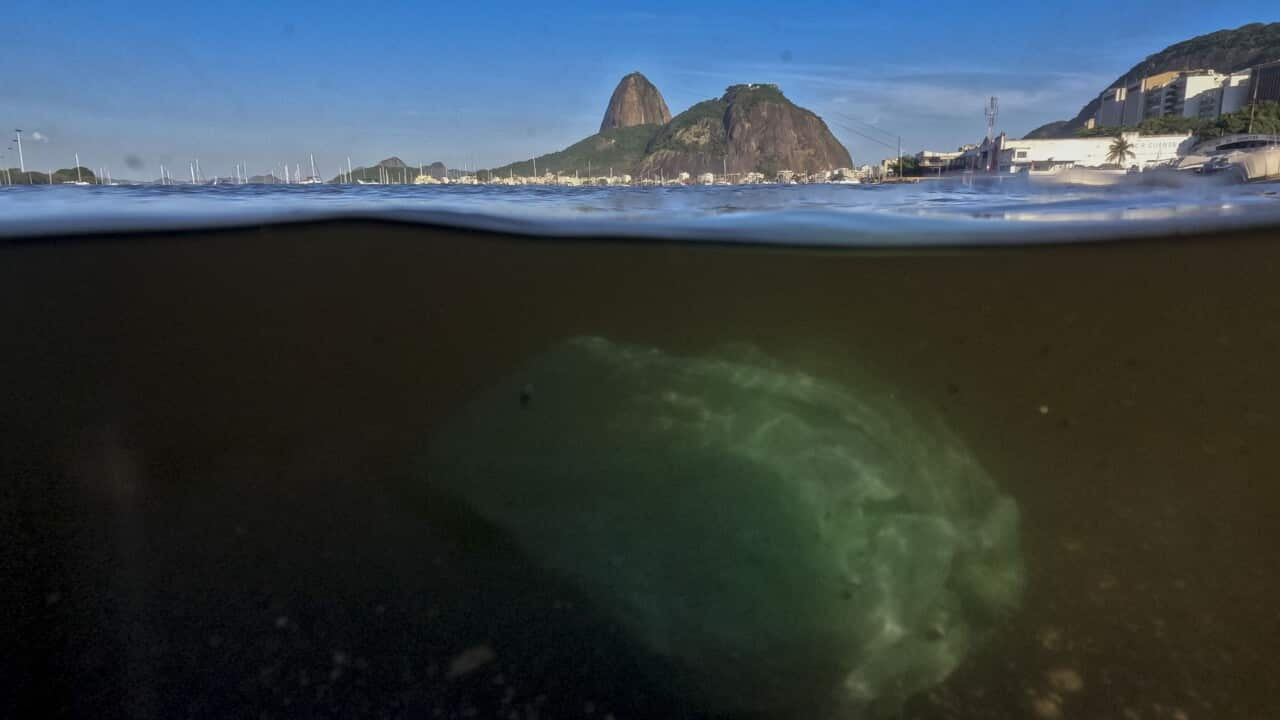TRANSCRIPT
The Palestinian health authorities say the death toll in Gaza has risen to 41,226 with a further 95,413 injured.
In the past 24 hours, Israeli military actions resulted in at least 35 deaths and dozens of injuries.
On Sunday, Israeli forces targeted schools and refugee camps in Nuseirat, Jabalia, Gaza City, and Rafah, killing dozens.
Israel maintains that it targets militants, accusing Hamas and other groups of endangering civilians by operating in residential areas.
The UN Special Rapporteur on the Situation of Human Rights in the Occupied Palestinian Territories, Francesca Albanese, has criticised mostly Western states for their continued support for Israel despite what human rights experts describe as an ongoing genocide in Gaza.
“Shockingly, in the face of the abyss reached in the OPT and the hope provided by the international justice system, most member states remained inactive at best, or actively aiding and assisting Israel's criminal conduct.”
Israel denies it is committing genocide, instead saying it takes steps to reduce the risk of harm to civilians and that at least a third of the Palestinian fatalities in Gaza are militants.
Ms Albanese also questioned Israel's right to a seat at the United Nations, acquired in 1949.
“And you see what member states, especially Western states, are doing, defunding UNRWA and even supporting Israel's actions against UNRWA as an overall attempt to get rid of the agency. This is so wrong, morally, legally, and politically, that it needs to be looked at as one symptom of a greater problem, that is, does Israel deserve to continue to go unpunished for its relentless attacks on the United Nations? Should there be a consideration of its membership as part of this organisation, which Israel seems to have zero respect for?”
Ms Albanese was joined by three other UN independent experts, including the UN Special Rapporteur Pedro Arrojo-Agudo, who says Israel is using water as a weapon.
“The lack of clean water has led to 1.7 million cases of infection diseases, mainly diarrhea, dysentery and hepatitis A, particularly affecting children, as well as cases of polio, smallpox and other infectious diseases that can trigger massive and deadly epidemics. All these coupled with the lack of medical care result in deaths, especially of babies and children, making water scarcity and contamination a silent bomb, which has far less visibility than those that destroy buildings, but are no less lethal bomb.”
Meanwhile, Russia's Foreign Minister Sergei Lavrov is accusing the United States of blocking United Nations resolutions aimed at achieving a ceasefire between Israel and Hamas.
Mr Lavrov is in Cairo for talks with his Egyptian counterpart Badr Abdelatty.
"We welcome any steps to stop the bloodshed as soon as possible and ensure a sustainable, permanent cease-fire. And we are seeking the same in the UN Security Council, acting in parallel with our Egyptian friends. The problem is that the United States does not want to pass any decisions that would seriously imply what everyone wants - an end to the bloodshed."
While Gaza remains the main focus, tensions on Israel’s northern border are high.
Hezbollah has launched multiple rocket attacks, with Israel’s Iron Dome intercepting several near the Lebanon border in the latest escalation.
Despite Hezbollah’s claims of not seeking war, clashes have killed hundreds of fighters and dozens of Israeli soldiers and civilians.
Israeli strikes have also killed about 140 Lebanese civilians since the 8th of October, displacing tens of thousands on both sides of the border.
This comes as Israeli opposition leader Yair Lapid visits the United States, pushing for a breakthrough in the hostage crisis.
"I believe we must have a hostage deal as soon as possible, we cannot afford to wait because they are dying down there. We just saw the terrible tragic loss of another five people last week, the week before. We cannot wait for any political changes, we need to make the deal now."
Mr Lapid has been critical of Prime Minister Benjamin Netanyahu's handling of the war.
"Well I expect him to run the country better than he does in ways. And, I sure hope he will not Minister Galant is doing a good job under terrible circumstances, and we're trying our best now, along with our American friends, to figure out a way to solve the conflict up north in the northern part of Israel without a full scale war. And hopefully this will work. If not, we will have to act against Hezbollah."
Defense Minister Yoav Gallant's stance on various issues, such as the ultra-Orthodox military enlistment bill and his disagreements with Mr Netanyahu over handling the war in Gaza and relations with the US, has put him at odds with the prime minister.
Meanwhile, Iran's new President Masoud Pezeshkian is denying his country supplied Yemen's Houthi rebels with the hypersonic missile that was fired at central Israel.
"In Iran, we don't have that type of missile that they (Yemen's Houthis) launched. The fact that they were able to produce these missiles is not the work of a day, a week, or a year; you all know better that the knowledge and skills are acquired over time."
The missile was fired on Sunday and travelled 2,040 kilometres in eleven and a half minutes where it hit central Israel causing a fire but no direct casualties.
The Israeli military, however, disputed the claim that the missile was hypersonic.
Israeli Prime Minister Benjamin has vowed to inflict a "heavy price" on the Houthis.
A shadow war between Israel and Iran over the years reached a climax with Israel’s apparent attack on an Iranian consular building in Syria that killed two Iranian generals and others.
The July assassination in Tehran of Hamas leader Ismail Haniyeh, suspected to have been carried out by Israel, also prompted Iran to threaten to retaliate against Israel.
President Pezeshkian says that Iran wouldn’t give up its ballistic missile arsenal unless all are disarmed in the region.
"They tell us 'don't have missiles!' OK, let's assume we don't have missiles. Go disarm Israel then. It doesn't make sense that we don't have missiles, and Israel can throw bombs on us whenever it wants, and we are told to shut up if we talk."













